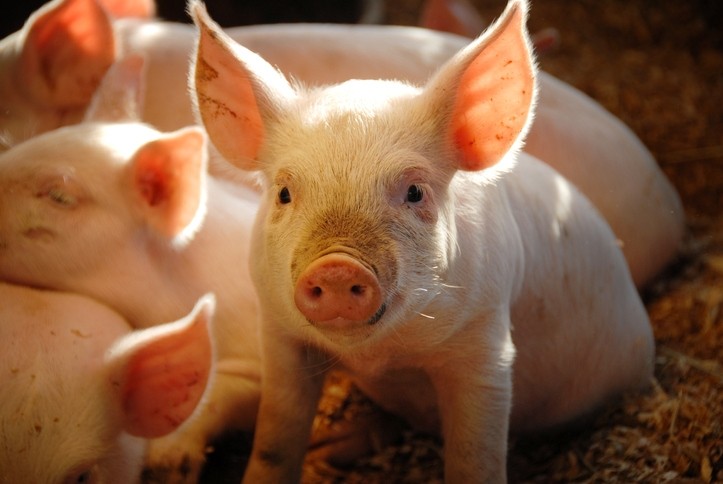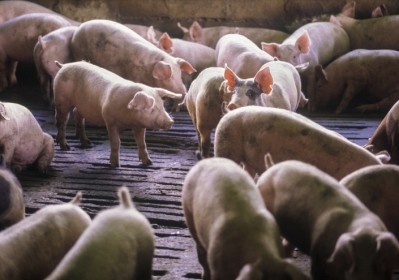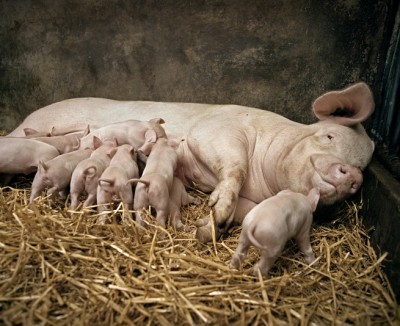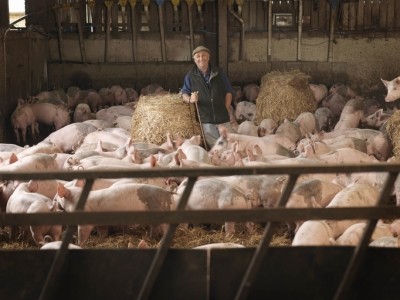Sugar beet pulp fiber could reduce post-weaning diarrhea in piglets

Dietary fiber (DF) supplementation is one of the strategies to support pig health as it has the capability to improve gut health and performance, said the Finnish team writing in Scientific Reports.
Micro-fibrillated cellulose (MFC) is a new-generation plant-derived feed ingredient. It originates from sugar-beet pulp. It has a hyper-branched structure consisting of more than 90% dry matter and the ability to form shear-thinning hydrogel and has a high water-binding capacity.
Piglets undergo stress during weaning, which can result in low feed intake, minimal weight gain, and diarrhea.
Various feeding strategies currently in play to reduce diarrhea incidence at weaning and to improve production performance include the administration of prebiotics, probiotics, fatty acids, organic acids, essential oils, and dietary fibers in feed.
Dietary fiber can help to maintain diversified gut microbiota, it can also improve intestinal integrity, and gut health, said the authors.
“Adding a high-fiber diet can surge the activity of fibrolytic bacteria in the large intestine of growing pigs; a high volume of cellulolytic bacteria favors the establishment and development of some beneficial bacteria.”
Moreover, a diet lacking in fiber is associated with impaired intestinal-barrier function of the colonic mucosa and with higher pathogen susceptibility.
The study
The team hypothesized that MFC supplementation in the diet of sows and piglets would improve piglet performance at birth and during weaning and post-weaning, in terms of body weight, microbiota modulation, an increase in intestinal short chain fatty acids (SCFAs) and a reduction in diarrhea incidence and in piglet mortality.
The authors wanted to see the effects of MFC supplementation on piglets' performance before and after weaning. “We included 45 sows and their piglets in this trial and monitored the results until the piglets were seven weeks old.”
During gestation, these sows were housed loose in groups of 10 to 15 in pens equipped with individual feeding stalls. From the last five weeks of farrowing, they were fed a standard gestation diet, differing only in that 24 treatment sows received 75g of MFC daily. After farrowing, both the control and treatment sows received a standard lactation diet, but those in the experimental group had their diet supplemented with 100g of MFC per day/treatment sow until weaning at 21 days.
Pre-weaning piglet feeding
Half of the litters of MFC-treated sows received MFC (1%) -treated creep feed, and the remaining litters received only control creep feed. In contrast, half the litters from the control sows received MFC (1%) -treated creep feed, and the remaining litters received only control creep feed.
Post-weaning piglet feeding
At weaning, 530 piglets from four pre-weaning piglet groups were included in a post-weaning feeding regime.
Results
MFC improved piglet performance both through maternal and dietary effects, found the team.
The maternal effect was evidenced by better performance of those sows receiving MFC during suckling, whereas MFC diet directly improved growth performance of piglets after weaning.
At post weaning, MFC supplementation reduced post weaning diarrhea in piglets, raised the abundance of butyrate-producing beneficial bacteria, such as, such as, Ruminococcus.2, Ruminococcaceae.UCG.014, Intestinibacter, Roseburia, and Oribacterium genera and reduced pathogenic bacteria, such as Campylobacter, and Escherichia.
In addition, piglets supplemented with MFC had higher bodyweight, and average daily gain (ADG) at three weeks and at seven weeks of age than did control piglets. Moreover, MFC supplementation tended to raise hexanoic acid and raise the butyric acid in the feces of post-weaning piglets, said the researchers.
“In our study, lactating piglets who had MFC effects from their mother, and had received MFC through creep feed, had higher ADG than did control piglets. This might be due to changes in their intestinal development, to improved intestinal permeability, and to stimulation of volatile fatty acid (VFA) production by cellulose supplementation.”
The piglet group that had only received MFC during their suckling period also had higher growth than control piglets.
“Supplementation of dietary fiber in suckling piglets could affect their post-weaning performance by developing and stimulating their milk-oriented gut microbial population towards being fibrolytic-oriented, which would shift the microbiota that adapt the metabolic trait of breaking down the complex polysaccharides.”
The researchers also saw that, at post-weaning, the butyrate level of piglets receiving MFC was significantly higher than that of control piglets.
“Butyrate plays a vital role in energy metabolism in the gut and in improving mucosal immunity. In addition, butyrate can improve gut barrier function, the first-line defense against gut pathogens, and can assist in maintaining a physical barrier by stimulating the goblet cells, followed by mucus secretion.
“Butyrate, as a fuel for enterocytes, has the capacity to stimulate the growth of mucosa and stimulate cell differentiation, and also to improve barrier function. Lower gut integrity, on the other hand, can lead to increased permeability to pathogens and to toxic metabolites.”
In summary, the authors reported that piglets supplemented with MFC had higher body weight and ADG than did control piglets, both pre- and post-weaning, and MFC supplementation led to raised butyrate content and to reduced diarrhea incidence in post-weaning piglets.
In addition, MFC supplementation reduced the abundance of pathogenic bacteria and raised the abundance of butyrate-producing beneficial bacteria during post-weaning until seven weeks of age.
The study was funded by the Hankkija Oy, and the Veterinary Research Support Foundation, Finland.
Source: Scientific Reports
Title: Dietary micro-fibrillated cellulose improves growth, reduces diarrhea, modulates gut microbiota, and increases butyrate production in post-weaning piglets
Authors: Uddin, M.K., Mahmud, M.R., Hasan, S. et al.














